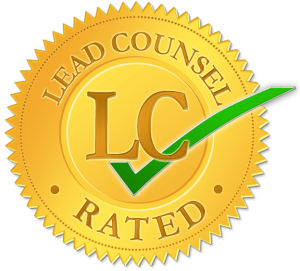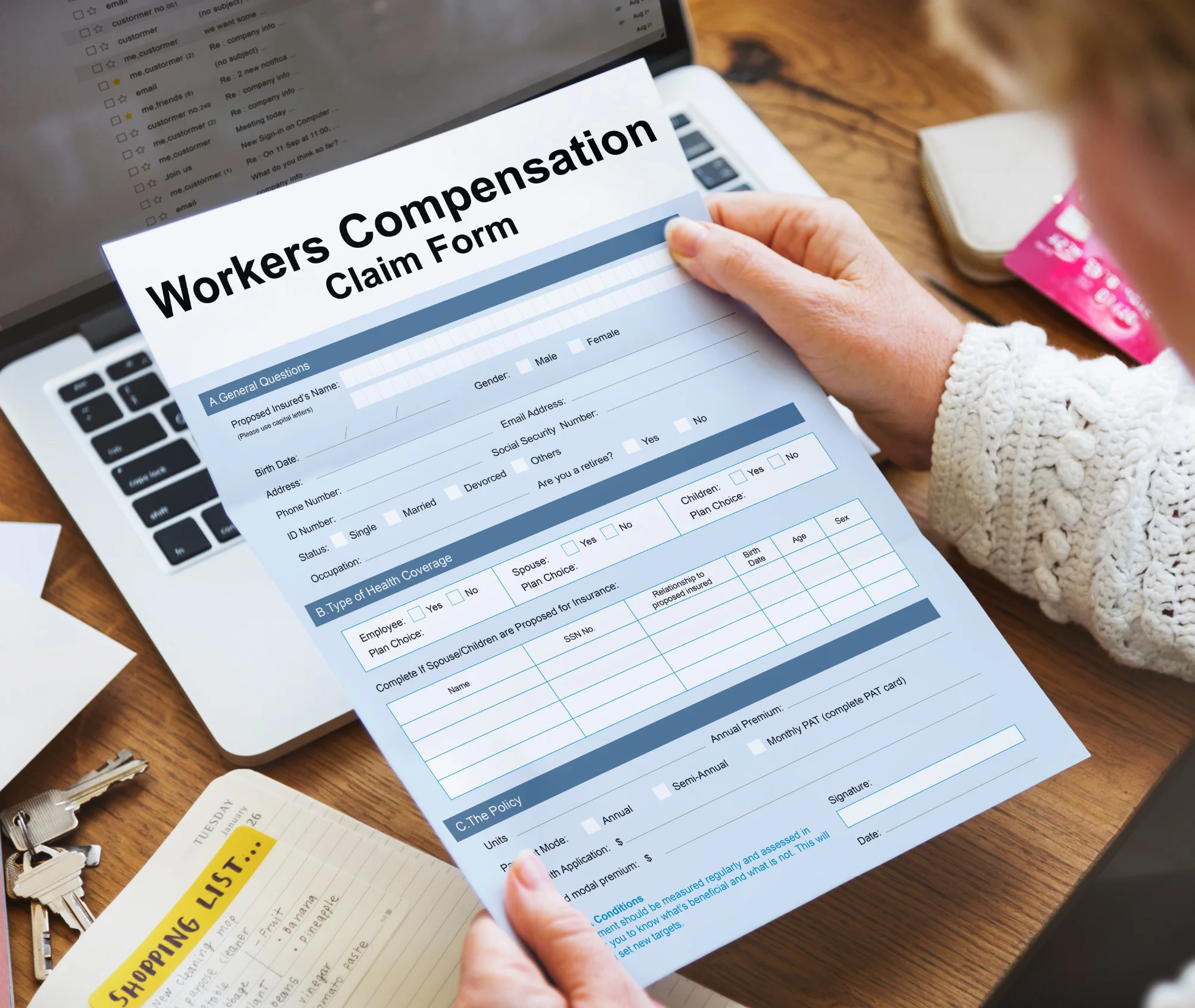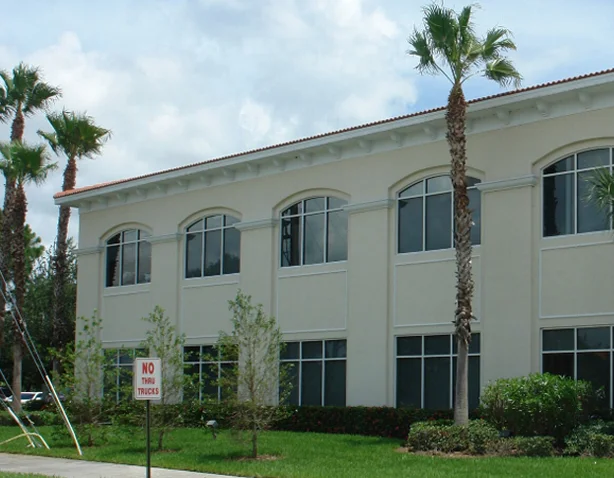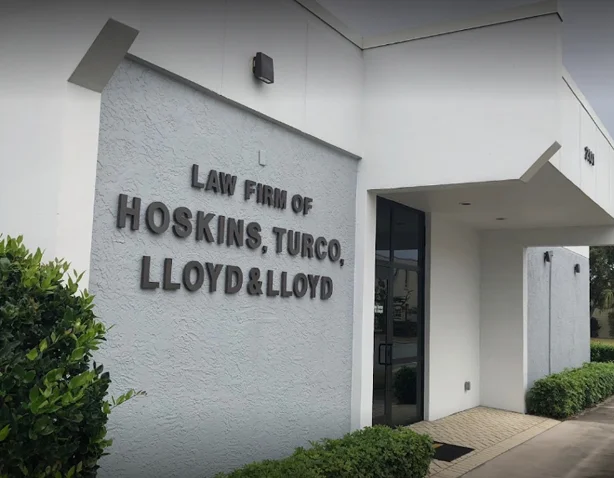Explore your options with knowledgeable Florida workers' compensation attorneys
Insurance carriers and employers are financially motivated to reduce the number of workers’ compensation claims they pay out. As a result, you may face an uphill battle when trying to file your claim after you get seriously injured on the job in Florida. You’ve probably got a lot of questions about the workers’ compensation claims filing process, requirements, and what it takes to get approved. To help you better understand, we’ve compiled a comprehensive list of frequently asked questions to shine a little light on this often murky situation.
A workers’ compensation lawyer in Florida can use their knowledge of insurance laws and the processes insurance companies use to verify a claim so that your claim can have the maximum chance of success. Speak to a Florida workers’ compensation lawyer for absolutely free during your initial case review. To schedule your free, no-obligation consultation, call us at 866-930-6435 or contact us online today.
Get a free consultation 
Florida laws make claiming workers’ compensation tougher than other states
Filing for workers’ comp after a work-related injury can be tough in any state, but in Florida, injured employees have fewer rights, and insurance carriers have more opportunities to deny a claim.
For instance, your insurance company and employer can tell you what doctor you must visit to verify your injury and whether or not you are able to return to work. Since you cannot get a second opinion, you may find yourself frustrated with a healthcare provider that claims you are less injured than you actually are.
Secondly, Florida insurance regulations have a strict interpretation of a partial or total disability. Your employer could argue that you are able to return to work in a diminished role with fewer earnings, hurting your ability to claim replacement income.
You deserve to have the full-time and money it takes to heal from all of your injuries. Don’t let insurers or employers intimidate you into thinking you don’t have legal options. A workers’ compensation lawyer in Florida can assist you with your case and appeal denials you have recently received.
Third-party injury claims in Florida workers’ compensation cases
In certain situations, our legal team may inform you of potential third-party injury claims or lawsuits that we can pursue on your behalf. These claims would be against parties other than your employer who may be responsible for your injury.
For example, if your injury was caused by a defective safety product, such as faulty machinery or equipment, we may be able to hold the manufacturer or distributor accountable for their negligence. Additionally, if your injury occurred on someone else’s property due to their negligence in maintaining a safe environment, we can explore legal options to seek compensation from the property owner.
By identifying and pursuing third-party claims, we aim to maximize the compensation you receive for your injuries. Our experienced attorneys will thoroughly investigate your injury’s circumstances to determine all potentially liable parties and hold them accountable for their actions. We understand the complexities of personal injury law and will work diligently to ensure that you receive the justice and financial recovery you deserve.
What are the steps to take to report a workplace injury?
You should report the accident as soon as possible. Under Florida law (Section 440. 185), you only have 30 days from the date of the incident, or your claim could be denied. Reporting the injury typically involves the following steps:
- Immediate notification: Inform your supervisor or employer as soon as possible after the injury occurs. Prompt reporting ensures timely medical attention and initiates the documentation process.
- Seek medical attention: Obtain necessary medical treatment for your injury. Depending on the severity, this may involve visiting an onsite medical facility, seeking emergency care, or scheduling an appointment with a healthcare provider.
- Document the incident: Provide detailed information about the accident, including the date, time, location, and circumstances leading to the injury. Note any witnesses present and gather relevant evidence, such as photographs or surveillance footage, if available.
- Complete incident report: Your employer may require you to fill out an incident report form documenting the injury. Provide accurate and comprehensive details about the incident, including the nature of the injury, contributing factors, and any immediate actions taken.
- File a workers’ compensation claim: If the injury warrants medical treatment beyond first aid or results in lost work time, you may need to file a workers’ compensation claim. Follow your employer’s procedures for initiating the claims process, which may involve completing specific forms or contacting the designated insurance provider.
- Cooperate with investigation: Your employer or the insurance carrier may conduct an investigation into the incident to determine liability and eligibility for benefits. Cooperate fully with any inquiries and provide additional information or documentation as requested.
- Obtain follow-up care: Attend follow-up appointments and adhere to the prescribed treatment plan recommended by your healthcare provider. Keep detailed records of all medical visits, treatments received, and expenses incurred related to the injury.
- Stay in communication: Maintain open communication with your employer, healthcare provider, and workers’ compensation representative throughout the recovery process. Notify your employer of any changes in your condition or work restrictions as advised by your healthcare provider.
By following these steps, you can ensure that your workplace injury is properly reported and that you receive the necessary medical care and support while navigating the workers’ compensation process.
Why should I file a workers’ compensation claim?
There are several reasons to consider filing a workers’ compensation claim.
- First, injured workers receive specialized benefits that are not typically available to regular employees. For instance, those with prolonged injuries can access long-term medical coverage, along with benefits such as income replacement and ongoing medical care.
- Additionally, workers’ compensation provides financial assistance to the family of a deceased worker.
- Finally, it offers workers the reassurance that their employers will compensate them for their losses.
If you’re unsure about your eligibility, we strongly recommend you seek advice from an experienced workers’ compensation lawyer.
What benefits can I receive from a workers’ compensation claim?
Workers’ compensation is a crucial safety net for employees who suffer injuries or illnesses while on the job. This insurance provides financial support to cover medical expenses, lost wages, and rehabilitation costs for workers who are unable to perform their job duties due to a work-related injury.
It also offers protection to employers by limiting their liability for workplace accidents and ensuring that injured employees are taken care of. Workers’ compensation laws vary by state, but they generally require employers to provide this insurance coverage to their employees. By providing this safety net, workers’ compensation helps to ensure that injured workers can focus on their recovery without having to worry about the financial burden of their injury.
The purpose of this insurance policy was to protect employees who are injured on the job. This means that each employee would be paid for their lost wages and medical costs related to an injury. This insurance plan has changed greatly over the years, but some aspects are still quite beneficial to employees.
What work injuries are common among workers’ compensation claims?
If you have been injured in an accident while on the job that was not your fault, or even if you were working under unsafe conditions, you may be able to file a claim for lost wages and medical bills.
Most states have minimum standards of care that employers must keep in place, which means that if you are hurt on the job, you may be entitled to additional compensation.
Common workplace injuries include slip-and-fall accidents, automobile incidents, heat-related conditions, plant or factory mishaps, and traumatic brain injuries (TBIs). Each injury type entails distinct compensation criteria. For instance, slip-and-fall incidents necessitate evidence demonstrating negligence in workplace safety.
Workers’ compensation claims also cover injuries such as burns, cuts, shrapnel wounds, hearing impairment, stress-related ailments, eye injuries, fractures, and muscle strains. If a workplace injury exacerbates a pre-existing condition, it may impact the claim’s outcome.
These are just a few examples of common work injuries that may result in workers’ compensation claims. Each industry and job role present unique hazards, emphasizing the importance of workplace safety measures and proper training to prevent accidents and injuries.
In many cases, workers’ compensation lawyers may seek settlements for clients who can substantiate injury occurrence due to negligence, whether by an individual or a group of employees within a business or government agency.
Can I still receive workers’ compensation benefits if the accident was my fault?
Yes, in many situations you can get workers’ compensation, even if you are at fault for an accident, as long as you weren’t under the influence of drugs or alcohol at the time. If you are in a situation where you have suffered an injury at your place of work, then you have every right to seek compensation. There are many ways to recover compensation for your injuries, but you need to understand what types of workplace accidents are covered under workers’ compensation insurance.
Hoskins, Turco, Lloyd & Lloyd has a reputation for representing injured workers and fighting for their full rights. When you speak to one of our Florida workers’ compensation lawyers, you will be informed of your full legal options and your best choices for getting the maximum settlement possible.
What Is the difference between workers’ compensation and disability?
Social Security Disability Insurance (SSDI) and workers’ compensation are two distinct forms of benefits designed to provide financial assistance to individuals who are unable to work due to disability.
- Social Security Disability Insurance (SSDI): Social Security Disability benefits individuals with disabilities that meet the Social Security Administration (SSA) definition of disability, which typically involves a severe impairment expected to last for at least 12 months or result in death. Disabilities can be physical, mental, or a combination of both.
- Workers’ compensation: Workers’ compensation covers disabilities resulting from work-related injuries or illnesses, regardless of whether the disability is temporary or permanent. Covered conditions may include physical injuries, occupational diseases, or psychological conditions resulting from workplace trauma.
While both Social Security Disability Insurance (SSDI) and workers’ compensation provide financial assistance to individuals with disabilities, they differ in terms of eligibility criteria, funding sources, types of disabilities covered, and benefit structure. Our lawyers specializing in workers’ compensation and personal injury can assist you in identifying the most suitable plan of action.
Contact our experienced Florida workers’ compensation law firm today
When you reach out to our team of experienced workers’ compensation attorneys, you can expect to receive personalized and compassionate guidance on all of your legal options. Our team is dedicated to helping you navigate the complex world of workers’ compensation law, and we will work tirelessly to ensure that you understand your rights and options.
Whether you are seeking compensation for a work-related injury, disability benefits, or assistance with a denied claim, our team is here to support you every step of the way. We will listen to your concerns, answer your questions, and provide you with the information you need to make informed decisions about your case.
With our experienced and knowledgeable attorneys by your side, you can feel confident that you are in good hands and that we will fight for the best possible outcome for your situation. Contact us today to schedule a consultation and learn more about how we can help you with your workers’ compensation claim.
Schedule your free consultation now when you use our simple form to contact us online or call us at 866-930-6435.

















 Port St. Lucie
Port St. Lucie


